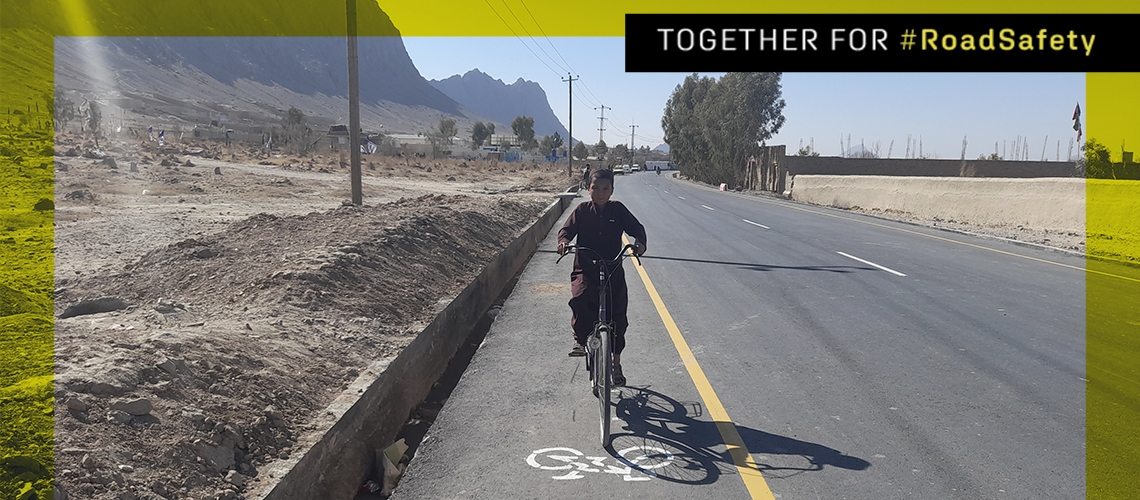
The new bike lanes on a District 7 road in Kandahar have sparked joy for 12-year-old Maziar and his friends. Painted on with bicycle symbols, the one-and-a-half-meter-wide lanes are a welcome addition to their daily bike commute to school. A relative visiting from Kabul explained the routes were meant only for cyclists.
The lanes are the talk of the town, helping cyclists reclaim parts of the road for their comfort and safety.
"We are thankful to whoever did this amazing job. The introduction of bike lanes will definitely improve our safety and make our daily commute more comfortable. With the construction of this road, the whole look of our neighborhood has changed. Now it looks like a new area; the dust has been reduced and it is much easier to commute," says Maziar.
Approximately one-fourth of Afghanis use bicycles to commute to work and school. Most cyclists are from low-income households and cannot afford motor vehicles. Over the years, riding a bike in Afghan cities has become increasingly dangerous and unsafe.

The forty-year-long war has badly damaged the country's road infrastructure. Large potholes and long stretches of unpaved roads have resulted in high numbers of accidents among cyclists.
The number of vehicles in Afghanistan has nearly tripled to 1.6 million from 2005 to 2015, and trending up. Traffic laws enforcement is weak; rash driving and traffic violations are common, causing countless road crash fatalities and injuries.
The new 3-kilometer road stretch in District 7 is part of larger efforts to "build back better" and design streets that focus on safety.
In addition to dedicated bike lanes, the road features sidewalks, traffic signs, drains, and trees. The sidewalks will help make the road more inclusive by facilitating pedestrians' mobility. The traffic signs will help in improving road safety for all users. The drains and trees will help ensure the sustainability of the road.
The initiative was funded through the World Bank's Cities Investment Program financed by the Afghanistan Reconstruction Trust Fund (ARTF) and the International Development Association (IDA).
Work for similar roads is underway in Herat, Jalalabad, Khost, Kandahar and Mazar-e-Sharif through the Cities Investment Program. Their designs have been informed by extensive consultation with surrounding communities and aim to promote inclusiveness, improve road safety, and ensure sustainability.
These road construction projects also play an important role in supporting local businesses and creating much-needed job opportunities. All the projects have been awarded to local contractors who are employing local labor and are using local material to the extent possible.
Overall, the beneficiaries have hailed the local-driven development and promotion of non-motorized transport as a step in the right direction.

(This story was originally published as a blog.)